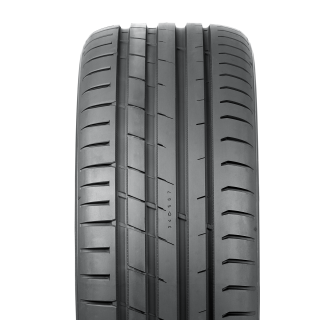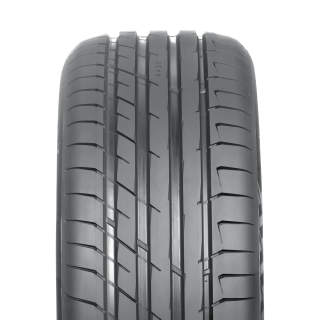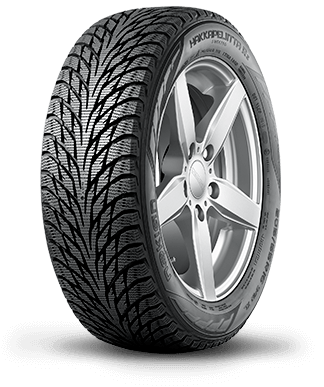Passenger car summer tires
We have 3 tires for your journey
Nokian Tyres
Wetproof 1

Nokian Tyres
Powerproof 1

Nokian Tyres
Powerproof 2

Nokian Tyres summer tires for passenger cars
You need to be prepared for changing weather and challenging conditions on the road. Nokian Tyres summer tires are developed for the challenges of any type of summer, so you can drive safely in any traffic situation. Find high-quality passenger car summer tires for a safe and comfortable drive.
How do passenger car summer tires differ from winter tires?
The exact difference between summer and winter tires is in the profile of the tire. The design of a summer tire ensures that you can drive safely even when there is water accumulated on the road surface. Passenger car summer tires also have an asymmetrical profile and wider central grooves than winter tires.
In addition to the profile, the material also differs between summer and winter tires, as they are designed for entirely different conditions. Summer tires are harder and designed for temperatures above 7°C. The material becomes brittle at cold temperatures, making it more susceptible to damage.
How to choose the right summer tires?
To choose the right summer tires for your car, you should consider a few things before buying. These include, for example, tire size and markings on the tire sidewall. Remember to also check your current tires regularly to see if they are still safe to drive with.
Vehicle type
The size of your car and its purpose have a significant influence on the choice of the right summer tire. Passenger cars are notably lighter than, for example, vans or heavy industrial vehicles. Therefore, the summer tires used with passenger cars do not have to endure such heavy loads. On top of that, passenger cars are driven mostly on paved roads.
Tire markings
Each tire has tire markings, which help to determine the size, load capacity, speed index of a tire, and more. These markings can give you valuable information needed to choose the right tire for your vehicle. When in doubt, check the markings in your current summer tires or consult your local Nokian Tyres dealer. There are also EU tire markings that provide more information about safety and fuel consumption of the tire.
Tread depth
Tread depth is also important for the safety of a summer tire. New summer tires have a factory tread depth of about 8 mm, which decreases over time through wear and tear. As the tire’s tread wears out, its grip on the road decreases. To ensure sufficient safety on wet roads, the tread depth should never fall below 4 mm. The minimum level of tread depth in summer tires is 1.6 mm.
Tire age
Even if you don’t use your summer tires much and there are no significant signs of wear, the tires lose their properties after a certain age. If you buy a completely unused and new summer tire, it should be "broken in" within the first five years after manufacturing. After that, depending on your car's mileage, it can be driven for up to six more years. The manufacturing date of your summer tire is marked on the tire sidewall. Remember that the total lifespan of a passenger car summer tire is about ten years, as long as the tire has been stored and maintained well.
Tire price
Most car owners look closely at the price of new summer tires. Remember that cheap tires are often lower in quality and can wear out faster. High-quality summer tires often have lower rolling resistance which leads to less fuel consumption. Therefore, you can save money by investing in high-quality summer tires for your passenger car. On top of that, premium summer tires tend to be safer and more reliable than cheaper options.
95 % of reviewers recommend our products
A savvy consumer demands a lot from the products they purchase. During the years of use, they build a strong sense of whether or not they made a good choice.
Rate your tyres!
Product reviews total
19871
4.5
